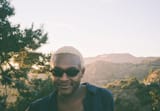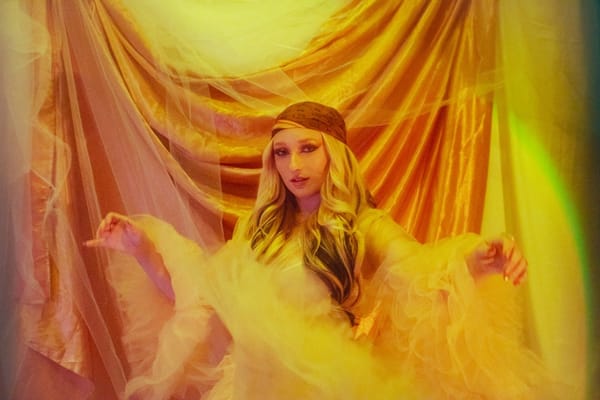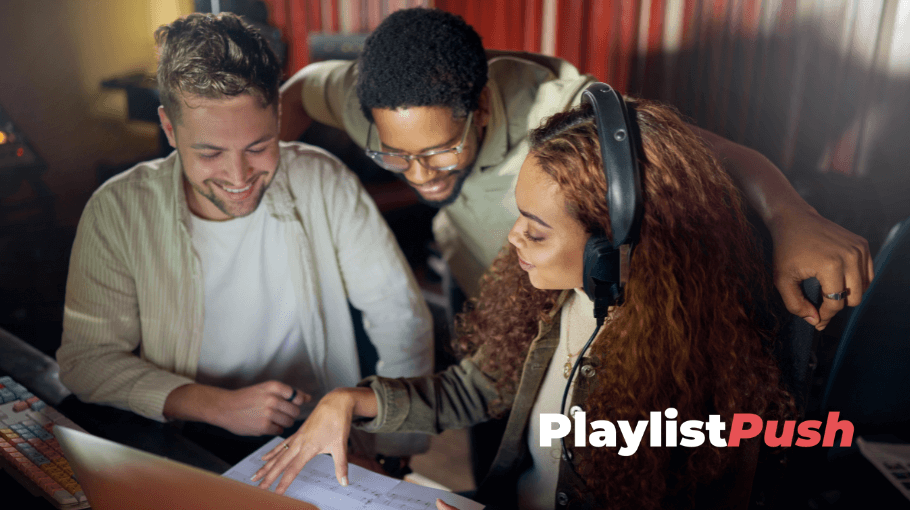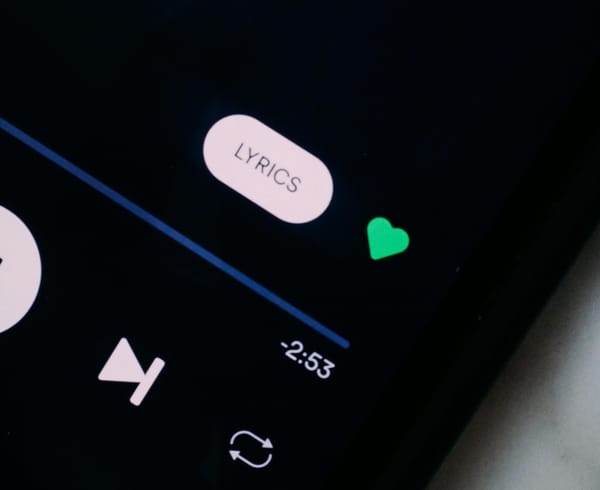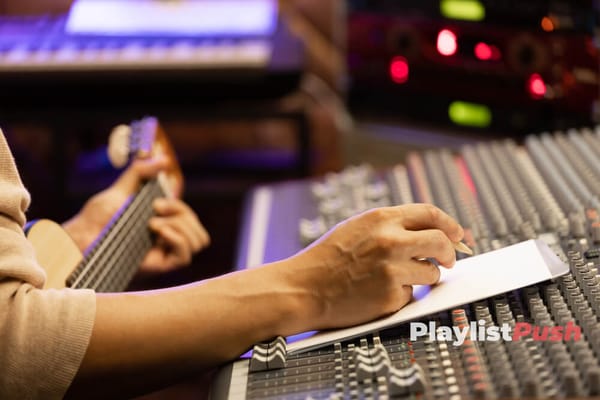From Brooklyn to LA: The Homegrown Sound of Fake Dad
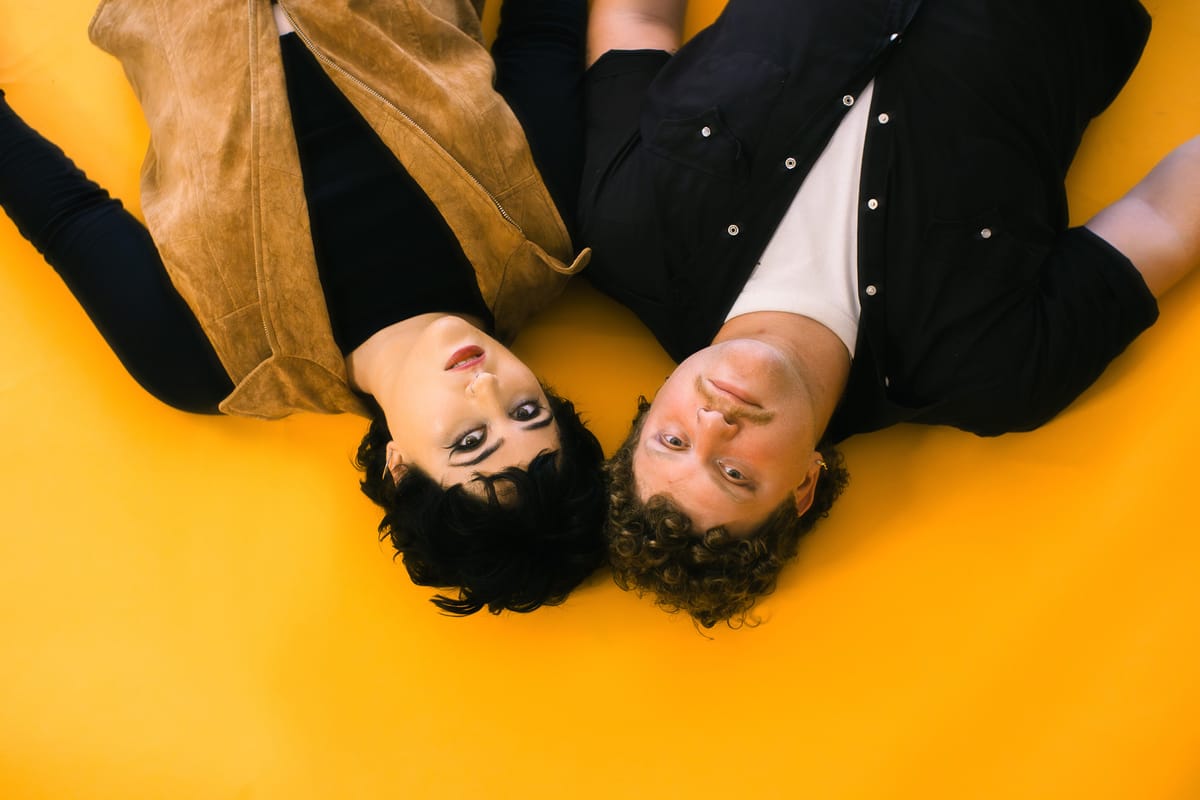
Hometown: NYC
Currently Based In: Los Angeles, CA
Favorite Hobby: Reading/Hiking (Andrea) & Crochet (Josh)
Favorite Artist(s): Brittany Howard (Andrea) Porches (Josh)
Who Is Fake Dad?
Andrea de Varona (she/her) and Josh Ford (he/him) aka Fake Dad are a bilingual songwriter/vocalist/producer duo based in Los Angeles.
Formed in 2020, the two met at a college party in the East Village and have been inseparable ever since. Melding their own unique artistic visions to build a shared sonic shorthand, Fake Dad creates an intoxicating and colorful musical fusion complete with catchy pop-laden hooks, sun-soaked layered guitars, and an infectiously rambunctious energy.
With a signature production sound and distinct vocal warmth, the two write and record expansive musical moments from their apartment. Although Andrea and Josh come from different musical backgrounds, they share a common goal: to create music that understands you.
With an unparalleled communal bond with their listeners, Fake Dad has already garnered much-deserved attention, landing over a dozen official Spotify playlists and selling out shows in their hometown of NYC as well as their new home of Los Angeles. They released a bilingual indie rock EP in 2023 titled Yerba Mala
- What is the story behind your artist name?
As many bands do, for a couple months before we settled on a band name, we had an ongoing list of potential names on a shared note on our Notes App. At this point, neither of us can remember what a single one of the other names were, so I guess that attests to how memorable Fake Dad turned out to be. We were both in college when we were deciding on the name and as couples and bandmates do we would be texting each other during most of our classes. One afternoon in particular Andrea was in a jazz ensemble class and the group was thinking of a name for their cohort to perform under during the end-of-semester showcase. The instructor of the class was a really silly dude/musician (of dad age) who ended up playing guitar in the final performance with the class, so when thinking of the name one of Andrea’s classmates jokingly suggested Fake Dad as an option. But no one really took it seriously or gave it any further consideration. Andrea was like hold up, that’s actually a good band name, I might use that. She texted Josh, “Fake Dad - Band name?” and he immediately responded, “Absolutely.” Just to be sure they added it to their list of potential names and shared that with some close friends all of whom voted Fake Dad as their favorite. And so Fake Dad it was.
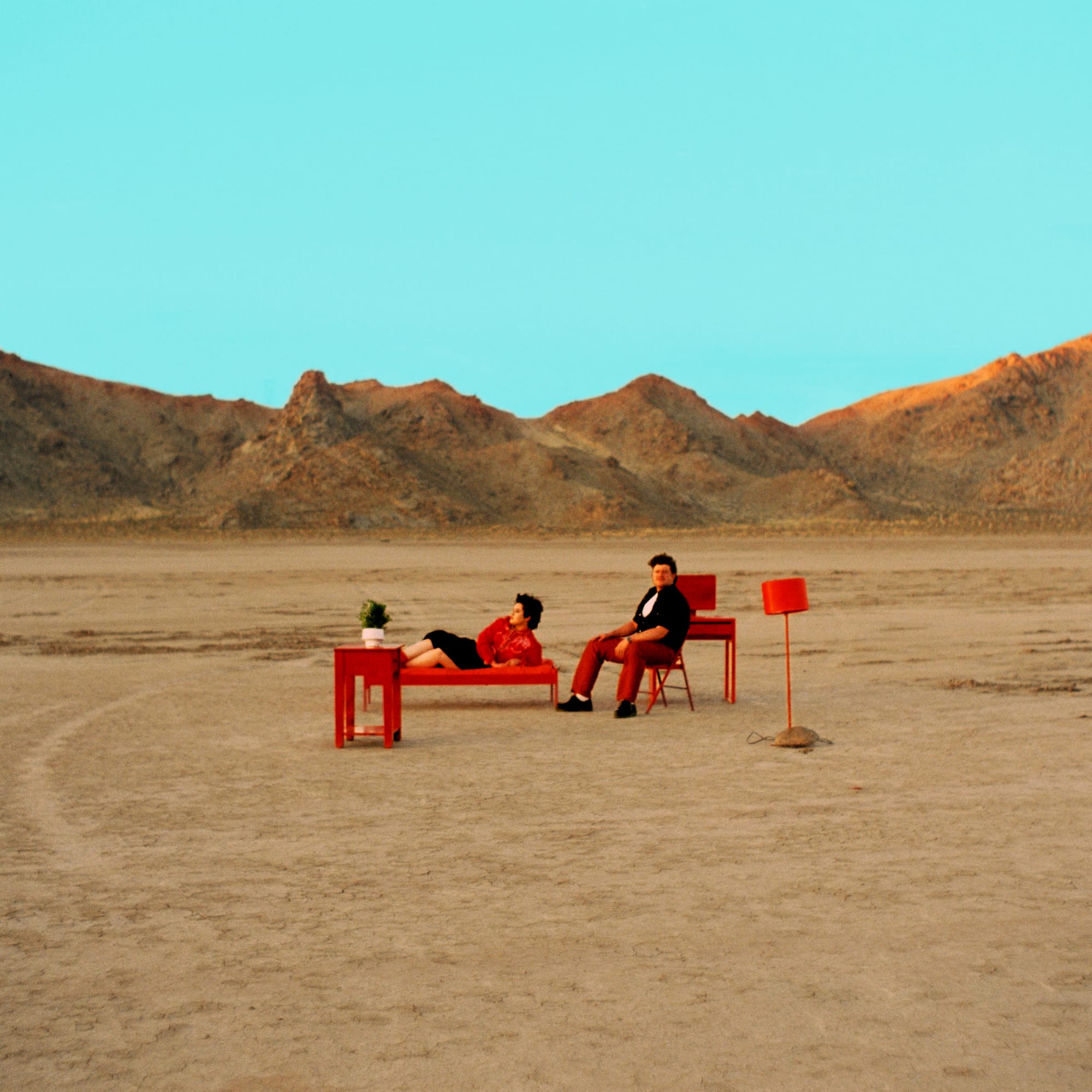
How has your music evolved since you first started making music, and what changes have you noticed in your style or approach over time?
Our music-making process is driven by collaboration from start to finish, which is a result of our intensely intimate bond as people and as creatives. The very first Fake Dad song ever written was a result of me (Andrea) showing a song I had written and was in the very early stages of producing to Josh, who immediately got everything I was going for. So, I naturally asked if he would help me out and produce it—we had already been dating for about 8 months at this point but had never made music together. The whole process was so seamless from start to finish. We knew even then that we had stumbled upon a kind of collaborative partnership that neither of us had experienced before as music makers. It was so successful from that very first song that it ended up winning a songwriting competition at Andrea’s school that resulted in us getting into a festival where we would have to perform a full set as a band. At that moment we realized we had more music to write and a band name to figure out.
Our music has always been emotional, but lately, we’ve noticed it has gradually shifted from being cerebral to something more physical and primal in its emotional core. We’re not as self-serious as we used to be, and a new goal has emerged, which is to make something fun that connects with people by getting them to move. It has led us in a much more rock-oriented direction, and has resulted in us making music in the studio that we imagine being cool and high-energy to play on stage. The music we’re making right now is the hardest and most rock & roll shit we’ve ever made.
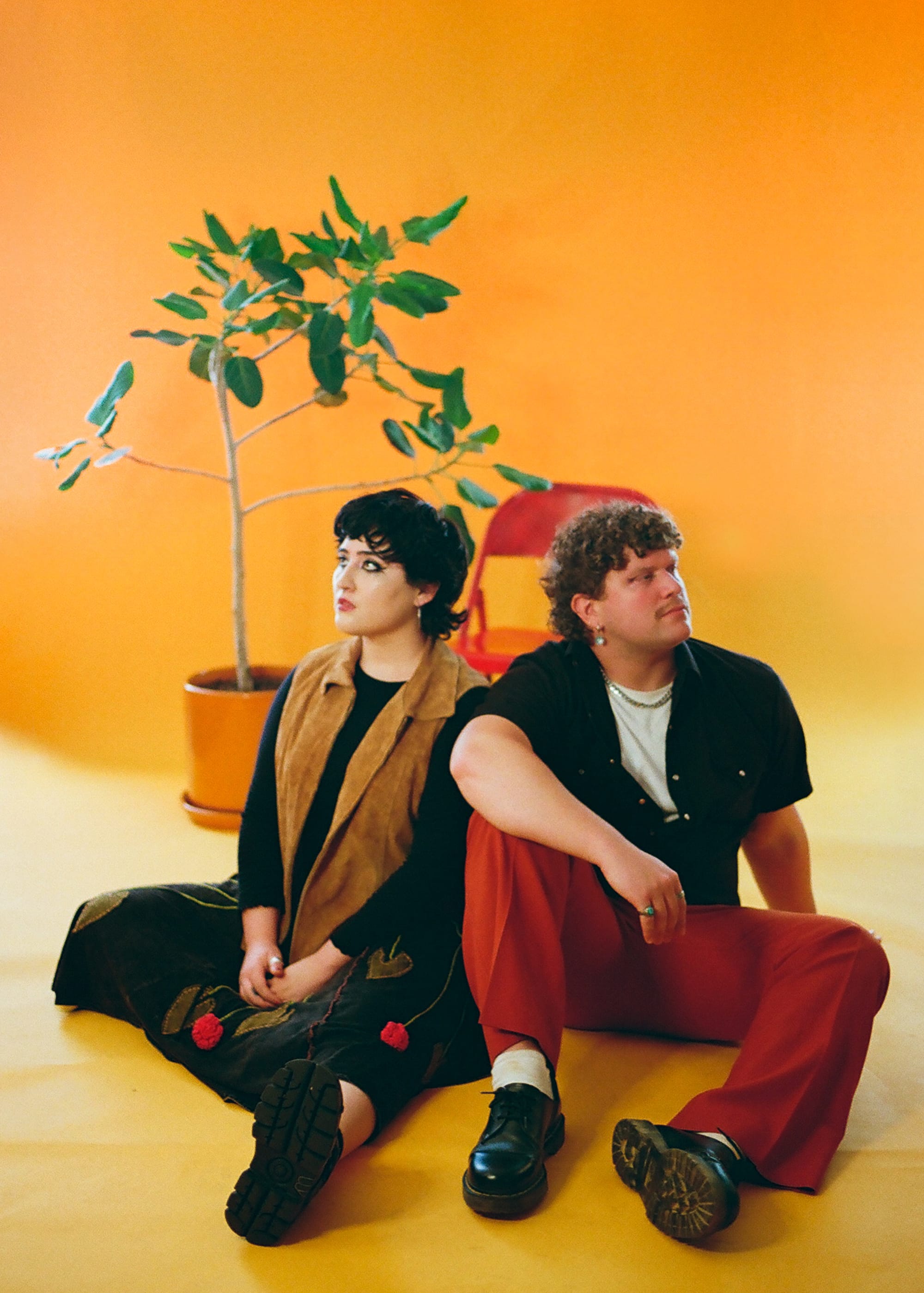
What music did you listen to when you were a kid?
Andrea: This tends to be a very long list because I grew up with a music-obsessed dad and with siblings over 10 years older who introduced me to super cool music of the early 2000s that I would have never heard of otherwise. The first band I absolutely fell in love with and that made me realize I wanted to be a musician and more specifically a front person when I grew up was Green Day and of course, Billie Joe Armstrong. My older brother was really into jazz and exposed me to Billie Holiday and Amy Winehouse around the same time and hearing both of their records made me fall in love with singing and songwriting—those two were the ones who inspired me to start singing and writing poetry & songs in my bedroom. My older sister was a big No Doubt/Gwen Stefani, Erykah Badu, and Avril Lavigne fan so I was exposed to those really young and they all individually became my favorite artists for particular years throughout my early childhood. And then my dad was huge on The Beatles, Bob Dylan, Bob Marley, Fleetwood Mac, David Bowie, The Rolling Stones, Elton John, Santana, Joni Mitchell, and the list goes on–so all of those bands and legendary artists are what I heard both while in my mom’s belly and as an infant being put to sleep and sitting in my stroller. They were always playing in the house, in the car, all while my brain was tiny and growing every day so I’m sure they were part of my development whether I liked it or not.
Josh: I was raised on a lot of singer-songwriter/rock like James Taylor, Carole King, The Beatles, etc. I think the first band I “discovered” by myself, and identified with on a personal level, was Coldplay (think the old stuff, like X&Y, Rush of Blood, even Viva La Vida.) It was in my early adolescence that I discovered how much more alternative indie rock there was like that— stuff like Arcade Fire, Young the Giant, and Radiohead, that explored this weird self-serious ennui I was experiencing at the time. I would say my final musical education came when I met Andrea in college. She introduced me to neo-soul, R&B, anything else that was cool to people besides emotionally constipated white boys from New England.
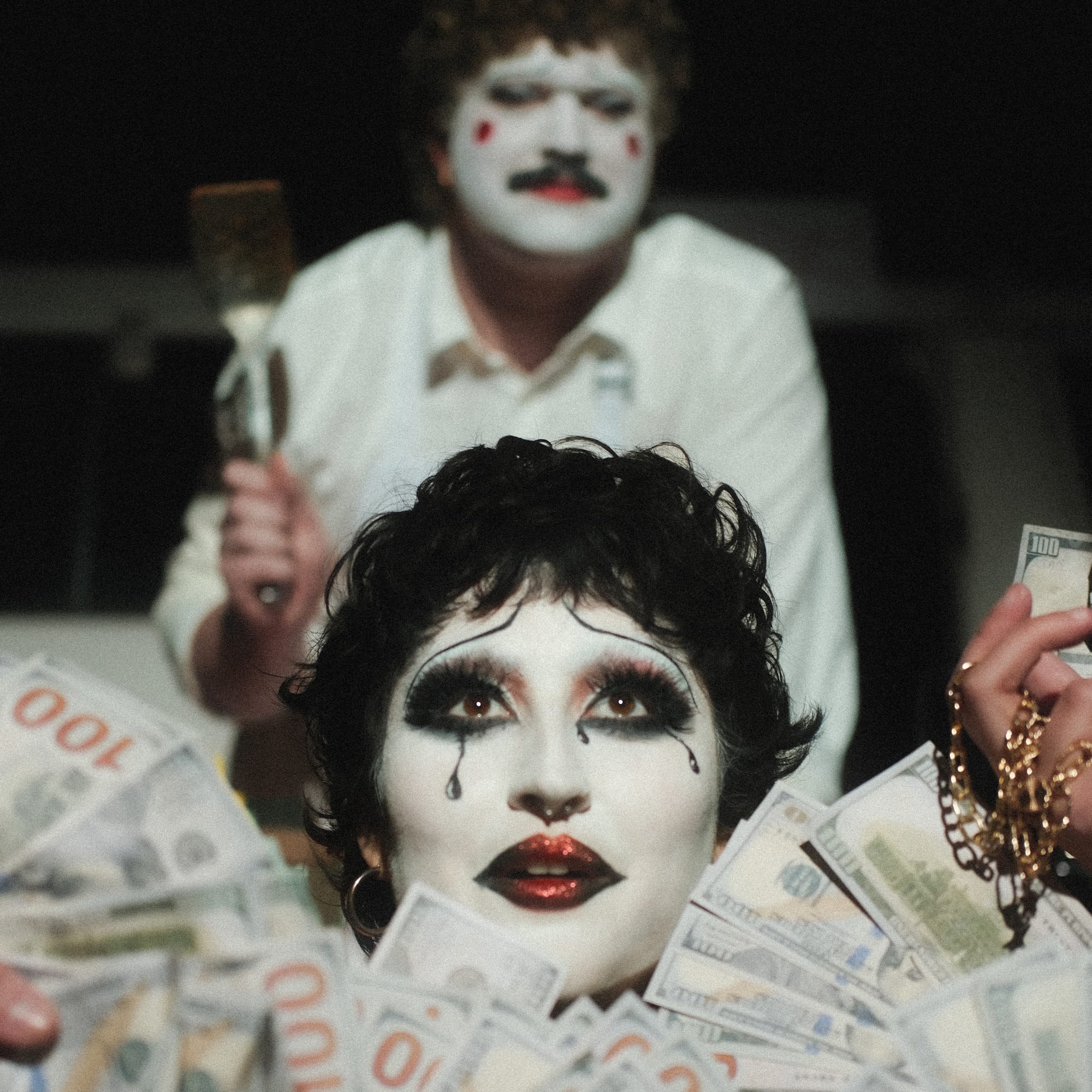
What fictional character do you identify with the most and why?
Andrea: Kiki from Hiyao Miyazki’s Kiki’s Delivery Service. Kiki is a young witch-in-training (just turns 13 at the beginning of the film) who ends up starting her own witch delivery service. She has a small, black cat named Jiji who follows her around everywhere (essentially her family). This movie was my favorite as a kid, partially because it was introduced to me by my Cuban grandma Haydee, whom I was obsessed with. She barely spoke any English and didn’t really know what she was buying when she picked up the movie for me at the store, but the little girl on the cover reminded her of me and she thought it was cute. Little did she know that it would become one of my favorite movies to this day. At its core, Kiki’s Delivery Service is about a young woman developing her own self-confidence and getting in touch with her authentic self, in her case her magical, witch powers. It’s about the pains of growing up and living with anxiety, dealing with feelings of depression and self-doubt, and learning that by being your unique self you are sure to find your community, your purpose, your place in the world. And all of those messages are so important and beautiful. Miyazaki is the best-animated film director, in my opinion, and I think that everyone should be exposed to his films, especially at a young age.
Josh: Steven from Steven Universe–his real superpower is that he insists on facing every problem and every situation with love and understanding, no matter what. No one, no matter how adversarial, is truly an enemy in his mind, but someone who you can reach an understanding with. Sometimes that can be much harder than leading with force, and sometimes it blows up in his face. Sometimes, the people around him who insist that it’s silly to live that way seem to be proven right. But he never allows his mind to be changed—every problem, regardless of how terrible and unfair it may be, is a new challenge to lead with empathy. I try to do that too, and sometimes I DO feel silly. Sometimes, when I give others the benefit of the doubt, they prove me wrong. But I’d rather lead with kindness and get burned than be another source of coldness and competition in the world.
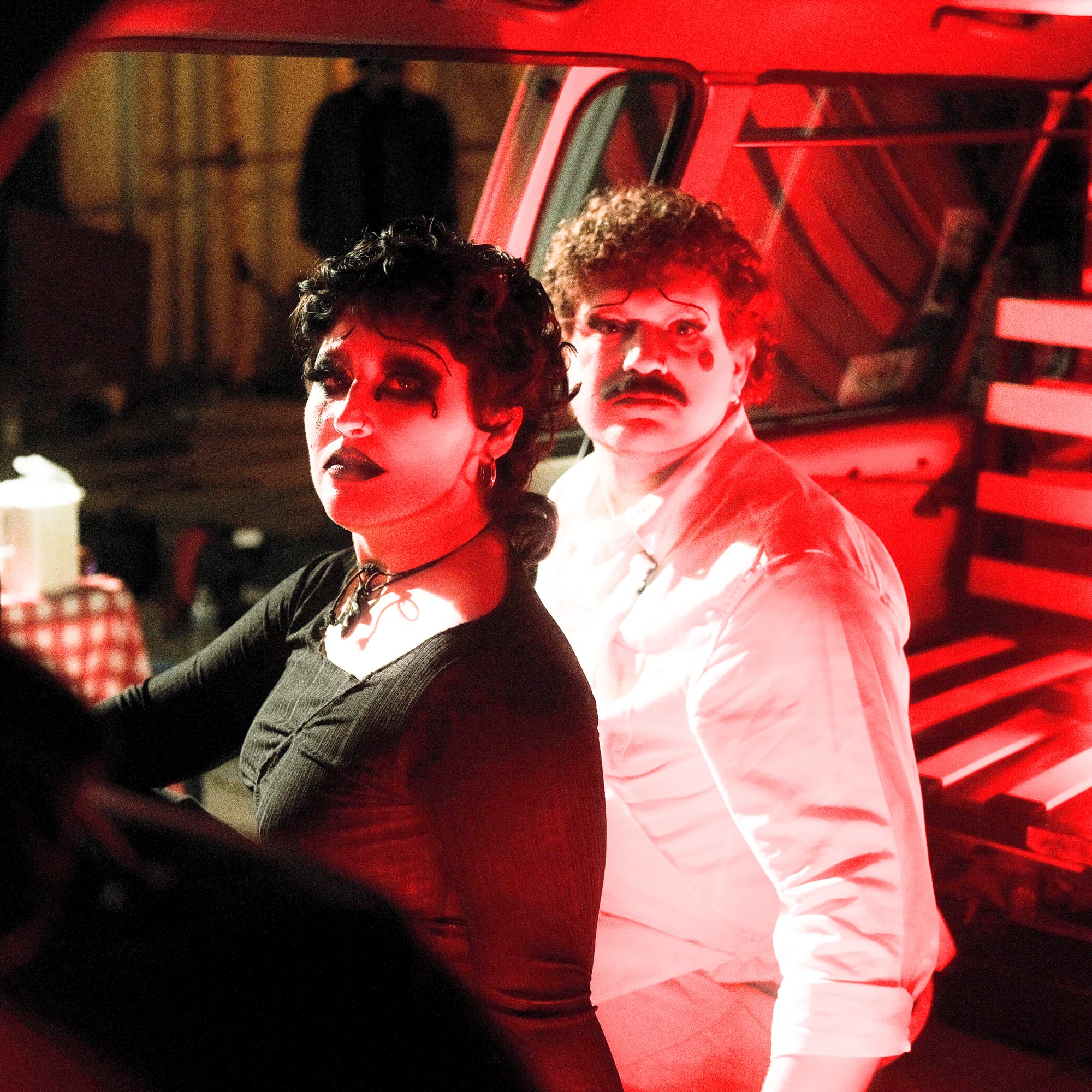
Can you tell us about a performance or recording session that is particularly memorable or meaningful to you?
Not just saying this because “Crybaby” is our newest single but the afternoon/evening we wrote, recorded and produced the track in our home studio was one of the most fluid, quick, fun, and absolutely joyous recording sessions we’ve had as collaborators. The majority of our music was made entirely by the two of us in our home studio–first, in our way more cramped, living-room studio in our one-bedroom/basement apartment in Brooklyn, NY, and now in our more spacious, professionally treated music room in our 2-bedroom apartment in Central Los Angeles.
Some songs are just effortless to write, and “Crybaby” was most definitely one of those. We went into the studio trying to build a song around a singular riff, and the second we found it, everything else just came pouring out. We love to explore things that might be frustrating or weighing us down in our music, but we also have a deep respect for and fascination with music that doesn't take itself too seriously. Crybaby is just saturated with that energy—we like to think you can hear how much fun we had making it.
Fun fact: Every single vocal and instrument take on the final, mastered version of “Crybaby” was written and recorded during the very first evening we sat to write and produce the song. In other words, all of the “demo” vocals ended up being the final vocals because they just had this raw, unmatched energy and delivery that we felt was so right for the song.
If you could have your fans remember one thing about you, what would it be?
We hope they remember to never forget to play and have fun even when life is shit. It’s so easy especially as artists growing up in the modern age to take everything so seriously, because the world around us warrants that almost every second of every day. So when fans think of Fake Dad years down the road, we hope that they remember how much fun they had either listening to our music or coming to one of our shows. We hope they remember not to take themselves too seriously and to always be kind to themselves.
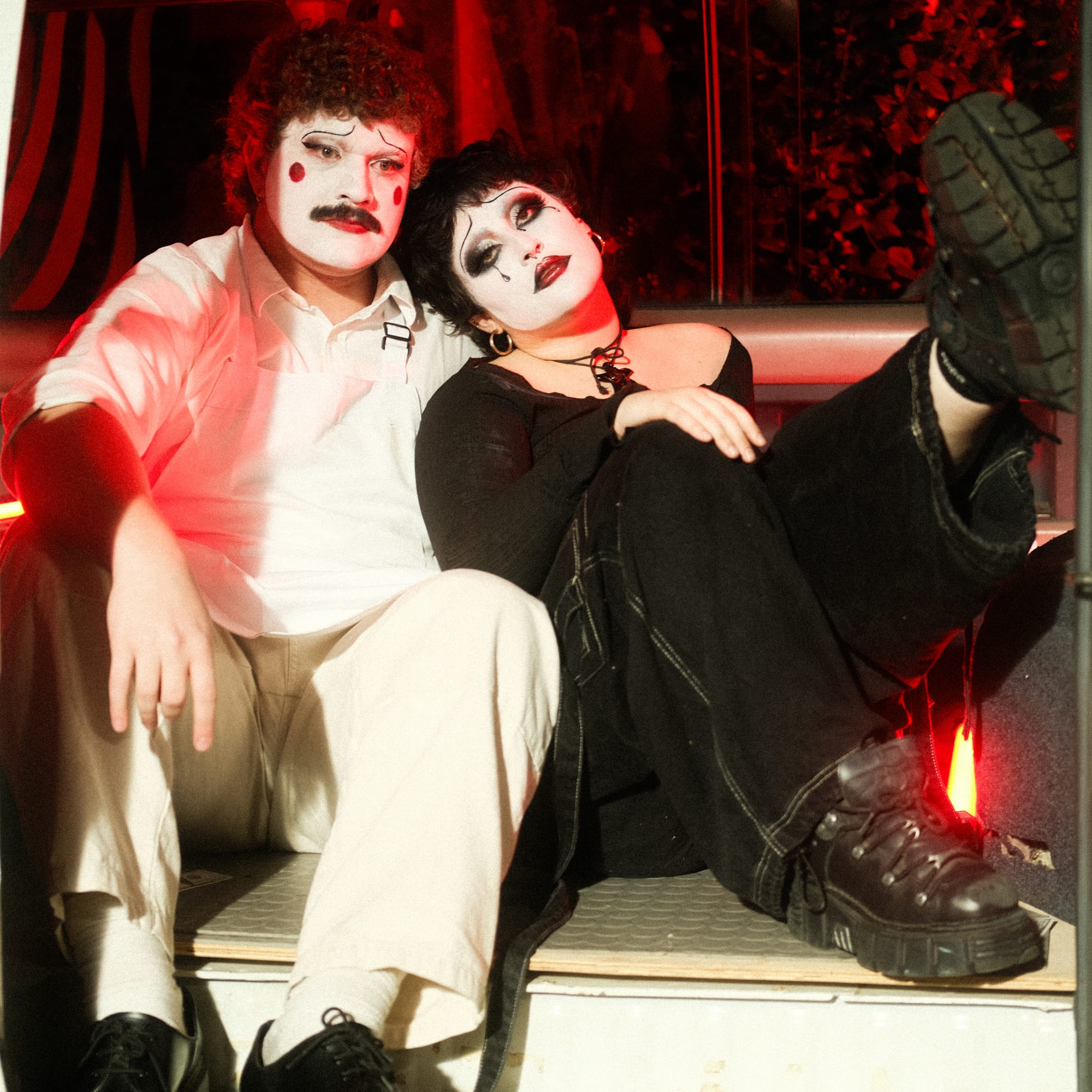
How has Playlist Push contributed to your growth as an artist?
We first heard about Playlist Push from our former managers and began using it for a song campaign here or there in 2022. In 2023 we started using the platform more regularly (in fact, I think we used it for the majority of what we put out last year) and we are so glad we did. To be completely honest, for so long we didn’t go anywhere near it because the price was simply not doable for us and we assumed it was one of those platforms that Spotify and all DSPs warn you to steer away from. We’d heard that all third-party playlists are littered with bots and that paying to get pitched to these kinds of playlists is actively harmful to your music career.
But soon we learned the difference and the truth about Playlist Push and why it’s really not like any of those other platforms or sites. For starters, early on we found that Playlist Push helped us target the right people, an audience who would actually listen to our music and care enough to keep up with us either by following us on socials or keeping up with future releases. By helping us pitch to curators with playlists and listeners who would actually resonate with our music, Playlist Push (i.e. linking with our Fans Also Like section on Spotify and tagging our song with similar genres) has helped us grow our potential reach and in doing so make new, real fans as fully independent artists with minimal marketing and promo budgets. Because Playlist Push sends curators to review rather than automatically place your tracks without even listening or considering style/genre, when a curator approves your song and decides to place it on one or more of their playlists they are doing it because they actually connected with your song, they get it and want to listen more and therefore believe that your music will resonate with their listeners. For this reason, Playlist Push has aided us in expanding our fan base and global reach more than any third-party playlisting platform might have.

